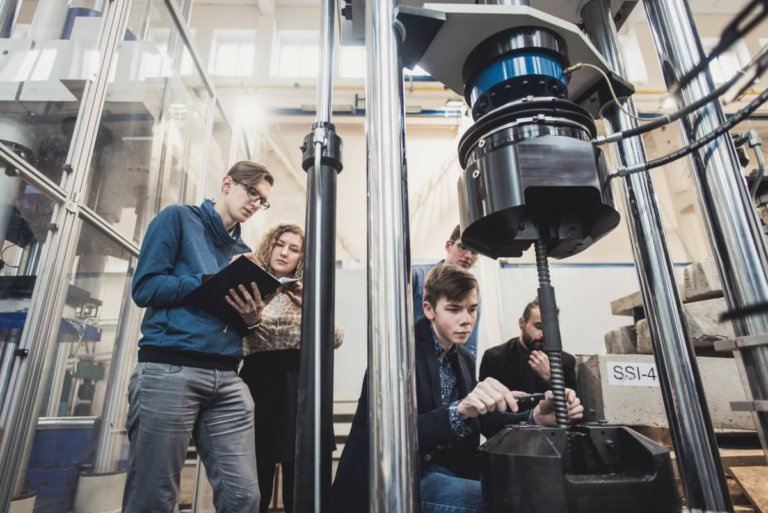
As we enter the Fourth Industrial Revolution, it is expected that IT systems will become more interconnected and integrated, leading to the rise of smart homes, buildings and infrastructure.
There will be a need for specialised engineering experts to create dynamic and innovative solutions for mankind with sustainability and energy-saving practices in mind.
Electrical and electronic engineering is one discipline where such experts will be highly in demand.
According to a survey by The Institution of Engineering and Technology (IET), the electrical and electronics sector is one of the highest user groups of new and advanced digital technologies – making up 23 percent of overall use of 3D printing and 45 percent of sensors in 2017.
The consumer electronics market is also booming worldwide. There seems to be no shortage of demand for goods like laptops and smart devices like smartphones, smart televisions and smartwatches.
According to the Consumer Electronics Market Size & Forecast Report, 2012 – 2020, the consumer electronics market is estimated to reach US$838.85 billion this year.
An advanced degree programme in electrical and electronic engineering at Vilnius Gediminas Technical University (VGTU) will equip you with the skills needed to thrive in this rapidly growing sector.
Engineers today not only need to keep up with changing technologies and the latest advancements. They also need to learn soft skills such as creative problem-solving, innovation, critical thinking, analytical thinking, collaboration and effective communication.
At VGTU, one of the biggest research universities in Lithuania, students achieve both of the above.
Developing innovative Electrical Engineers
Those with an undergraduate degree in electrical engineering can deepen their knowledge with the two-year Master of Engineering Sciences in Electrical Engineering at VGTU. Applicants with a background in electronics, energy engineering/energetics and physics can also apply.
This specialisation of this Master’s is Renewable Electrical Power Engineering.
Students develop special expertise in electrical energy systems engineering and related fields in this programme. This includes knowledge related to the application of modern technologies, independent development of new products and services as well as photovoltaic and wind energy systems.

Source: Shutterstock
They also learn how to creatively apply theoretical knowledge and scientific research in developing cutting-edge solutions for the industry. Students learn how to select and use mathematical methods, software and hardware too.
Upon graduation, they will qualify to work in companies maintaining electric power systems, taking on roles such as project managers in advanced and modern projects.
Shaping future leaders in electronic engineering
The other Master’s offered at VGTU is the Master of Engineering Sciences in Electronics Engineering. Students with a background in electrical engineering, electronics, electrical and electronics engineering, physics or IT can apply for this programme.
This Master’s specialisation is in Computerised Electronic Systems. This specialisation focuses on modern sensors, interfaces and signal processors, sound and image processing software and other modern technology-based intelligent electronic systems.
Upon graduation, students will have the expertise and skills to develop modern electronic devices as well as electronic systems.
They will be prepared to work as leaders of groups at enterprises maintaining, designing and programming electronic and computer systems.
In both specialisations, students can go on study abroad and exchange programmes for one or two semesters. The participating universities are in countries such as Germany, Austria, Finland, Greece, Portugal, South Korea, Taiwan, Poland, Ukraine, Belarus and many others.
They also get the chance to hone their skills through graduate projects, internships, career programmes, clubs and societies.
Through these cutting-edge graduate programmes in electrical and electronic engineering, VGTU students become leading experts in a highly in-demand industry.
Follow VGTU on Facebook, Instagram, LinkedIn and YouTube
Liked this? Then you’ll love…
Electronic & electrical engineering: APAC’s spark of innovation
Global universities offering high-opportunity pathways in electrical engineering







